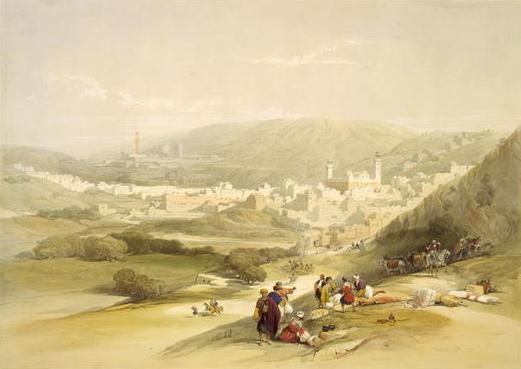18 July. David defeats the Philistines at Keilah
“Someone told David, ‘Look, the Philistines are fighting against Keilah and stealing grain from the threshing floors.’ David asked the LORD, ‘Should I go and fight these Philistines?’ The LORD answered him, ‘Go. Attack them, and save Keilah.’”
“But David’s men said to him, ‘We’re afraid here in Judah. We will be more afraid if we go to Keilah where the Philistine army is.’ David again asked the LORD, and the LORD answered, ‘Go down to Keilah. I will help you defeat the Philistines.’ So David and his men went to Keilah and fought the Philistines and took their cattle. David killed many Philistines and saved the people of Keilah…”
“Someone told Saul that David was now at Keilah. Saul said, ‘God has handed David over to me! He has trapped himself, because he has entered a town with gates and bars.’ Saul called his army together for battle, and they prepared to go down to Keilah to attack David and his men.”
“David learned Saul was making evil plans against him, so he said to Abiathar the priest [who had escaped from Nob], ‘Bring the holy robe.’ David prayed, ‘LORD, God of Israel, I have heard that Saul plans to come to Keilah to destroy the town because of me. Will the leaders of Keilah hand me over to Saul? Will Saul come down to Keilah, as I heard? God of Israel, tell me, your servant!’”
“The LORD answered, ‘Saul will come down.’ Again David asked, ‘Will the leaders of Keilah hand me and my men over to Saul?’ The LORD answered, ‘They will.’”
“So David and his 600 men left Keilah and kept moving from place to place. When Saul found out that David had escaped from Keilah, he did not go there.”
(1 Samuel 23:1-13)

Today’s passage shows David gaining popularity by defending an Israelite town from the attacks of the Philistines. It also shows that, with a relatively small following of just 600 men, David’s army was more suited to guerrilla warfare than it was to pitched battles or siege warfare.
David had heard that the Philistines were harrying the Israelite city of Keilah. They were not attacking the city itself – which was well defended by a city wall “with gates and bars” (1 Samuel 23:7), but they were stealing grain from the threshing floors outside the city wall.
So David consulted the LORD and asked whether he should attack the Philistines or not. Having received a favourable reply, David then consulted his men, who were less than enthusiastic. Having received confirmation from the LORD that he should go ahead, David then persuaded his men to attack the Philistines.
We’re not told what David said to his men, or what kind of battle ensued; but it’s likely that the Philistines were defeated in a surprise attack when they were least expecting it – perhaps at night or as dawn was breaking. It’s unlikely that there was a pitched battle, where David’s small force would have been grossly outnumbered.
When Saul heard that David had saved the people of Keilah, he was convinced that David had fallen into a trap. If David and his men sheltered within the city walls of Keilah, Saul could besiege the city with his overwhelming numbers and force the inhabitants to hand David over or be destroyed themselves.
But David had also thought ahead and was well aware of this possibility. So he asked God for guidance once again. In the sure knowledge that the people of Keilah were likely to buckle under pressure from Saul, David decided to escape from the city, and he and his men went south from Judah to hide in the Desert of Ziph.
Keilah, meaning ‘citadel’, was an Israelite city in the lowlands of Judah (see Joshua 15:44), near the modern Palestinian village of Qila, some 11 km north-west of Hebron.
The photo shows a painting by David Roberts overlooking Hebron in 1839.
You can read more about Saul and David @ https://www.thebiblejourney.org/biblejourney2/30-israel-becomes-a-kingdom-under-saul-and-david/saul-becomes-jealous-of-david/
